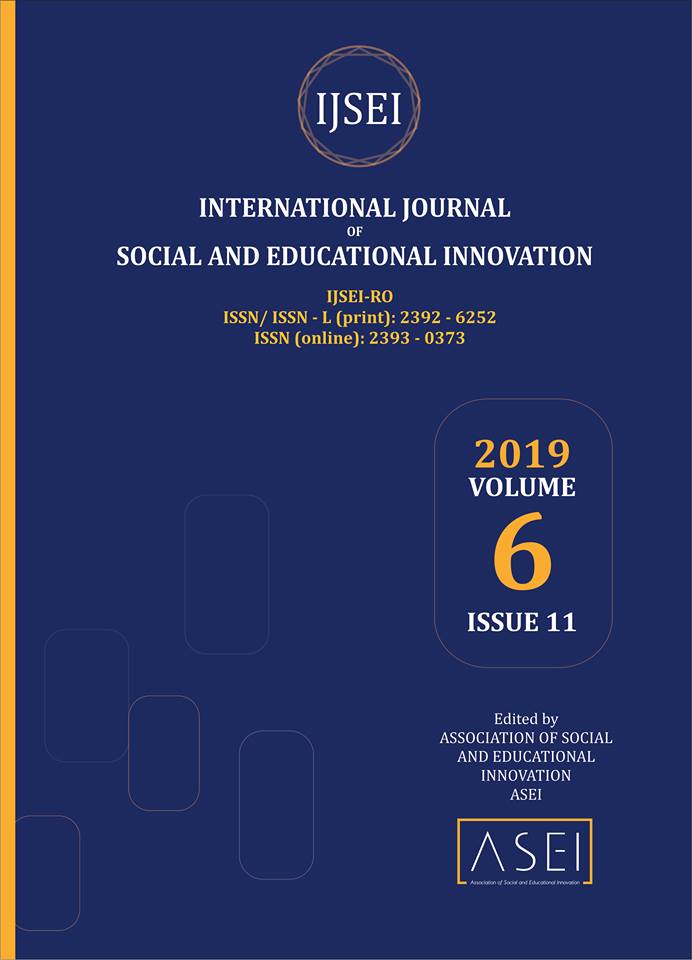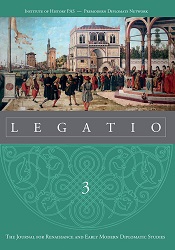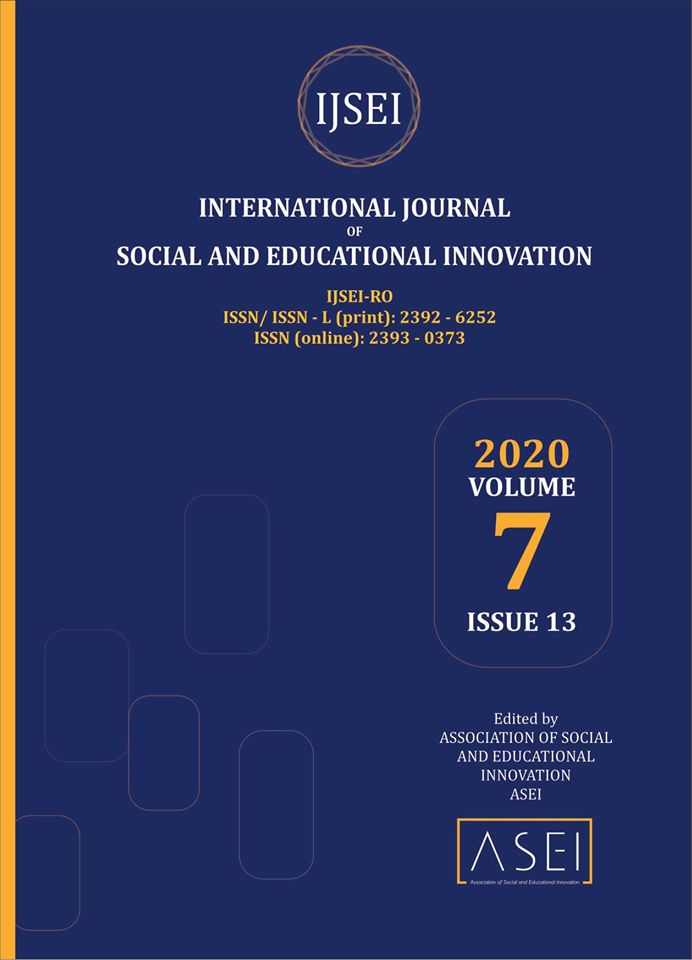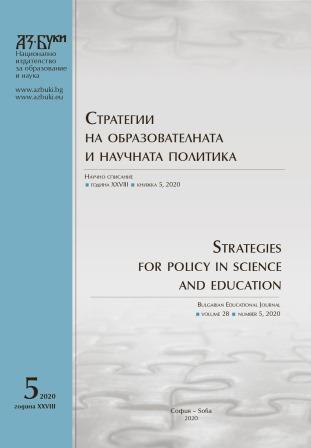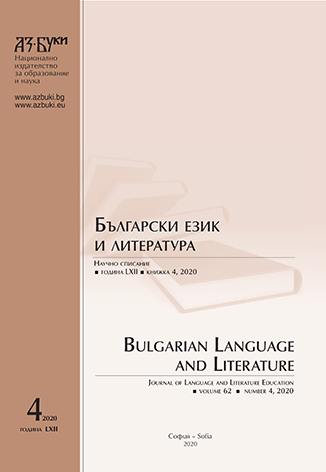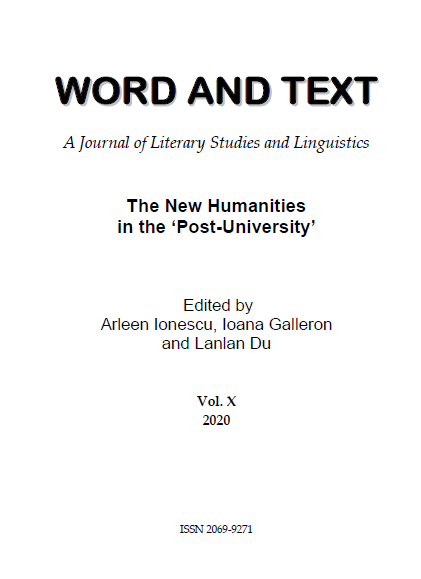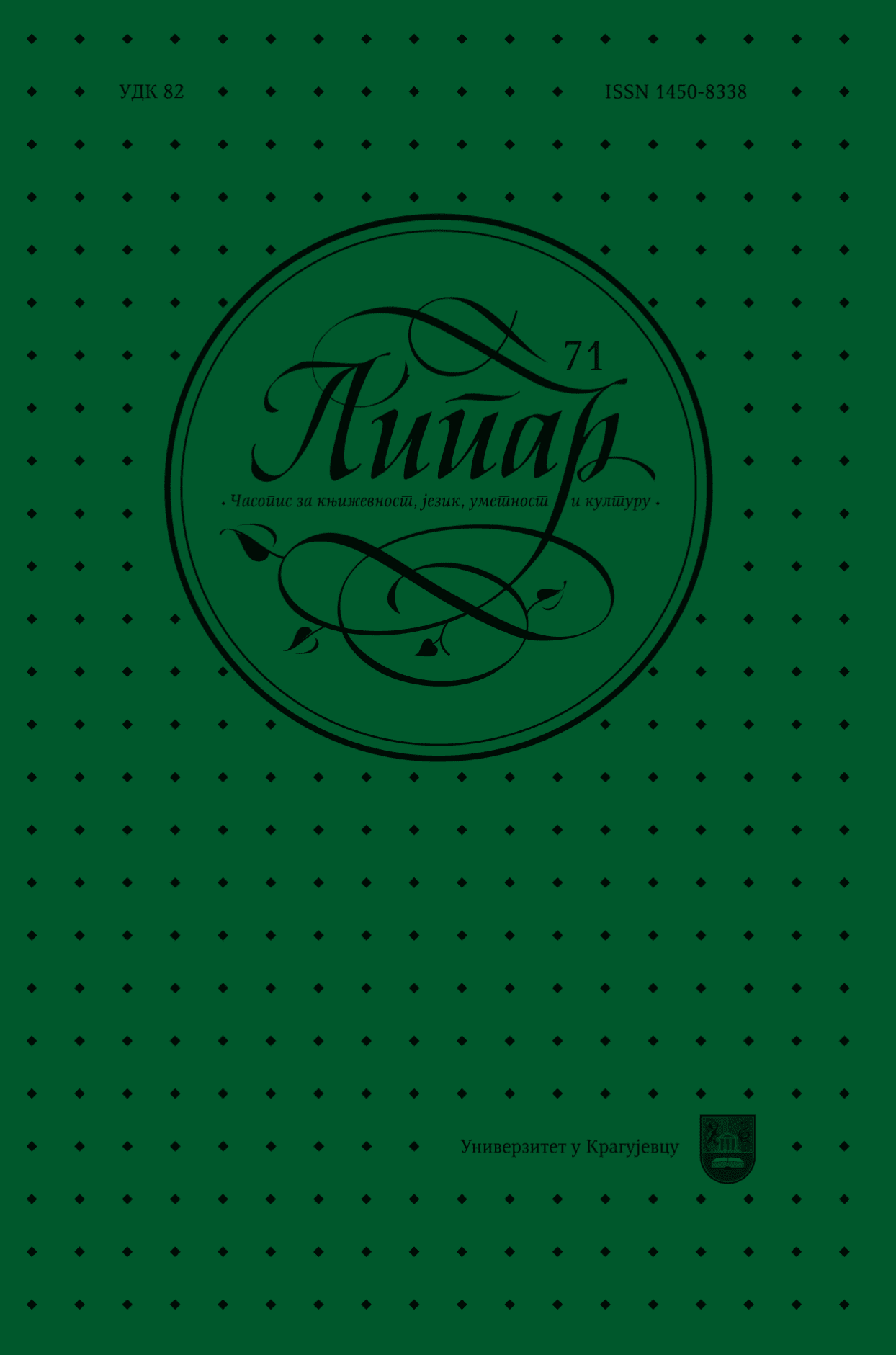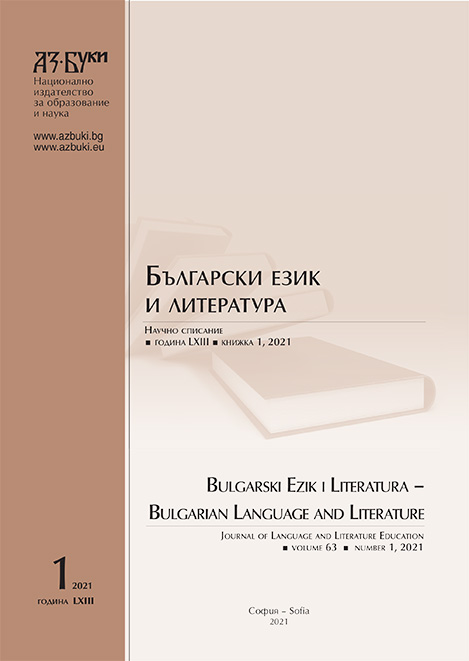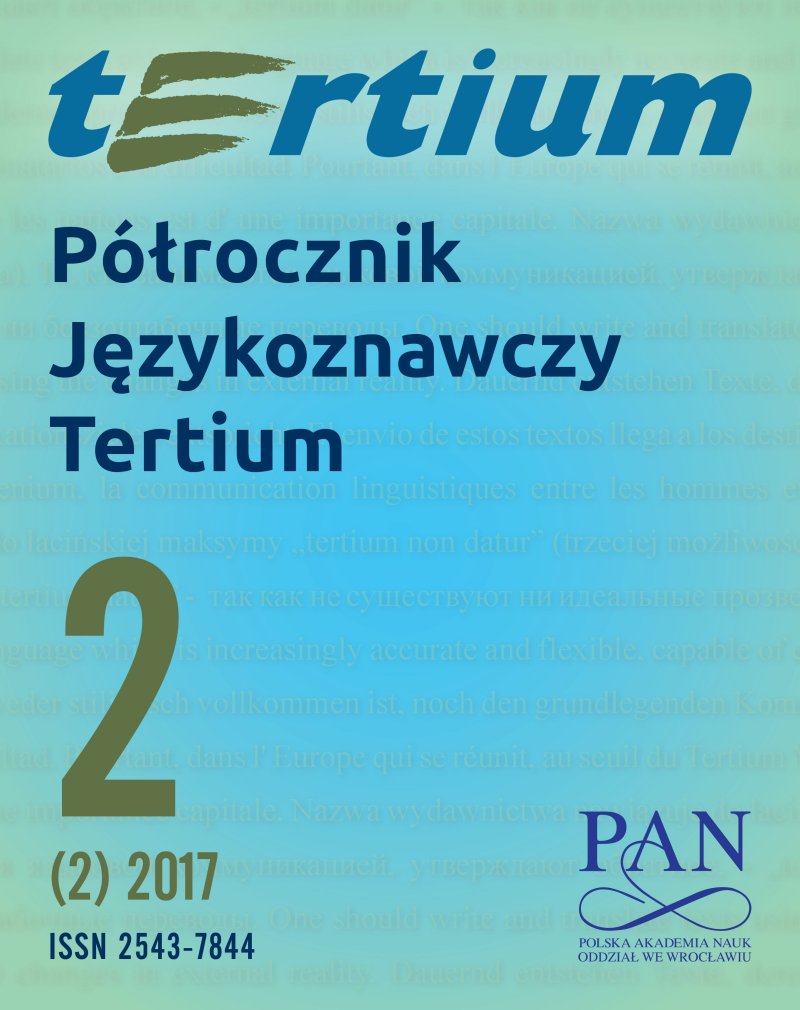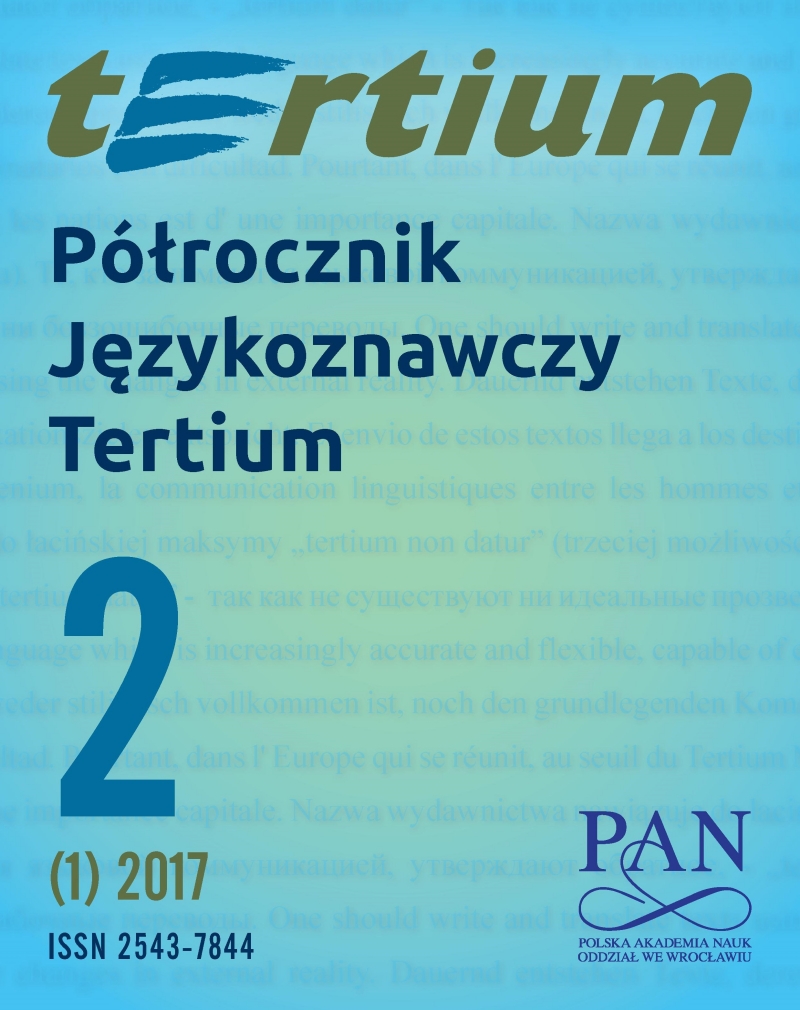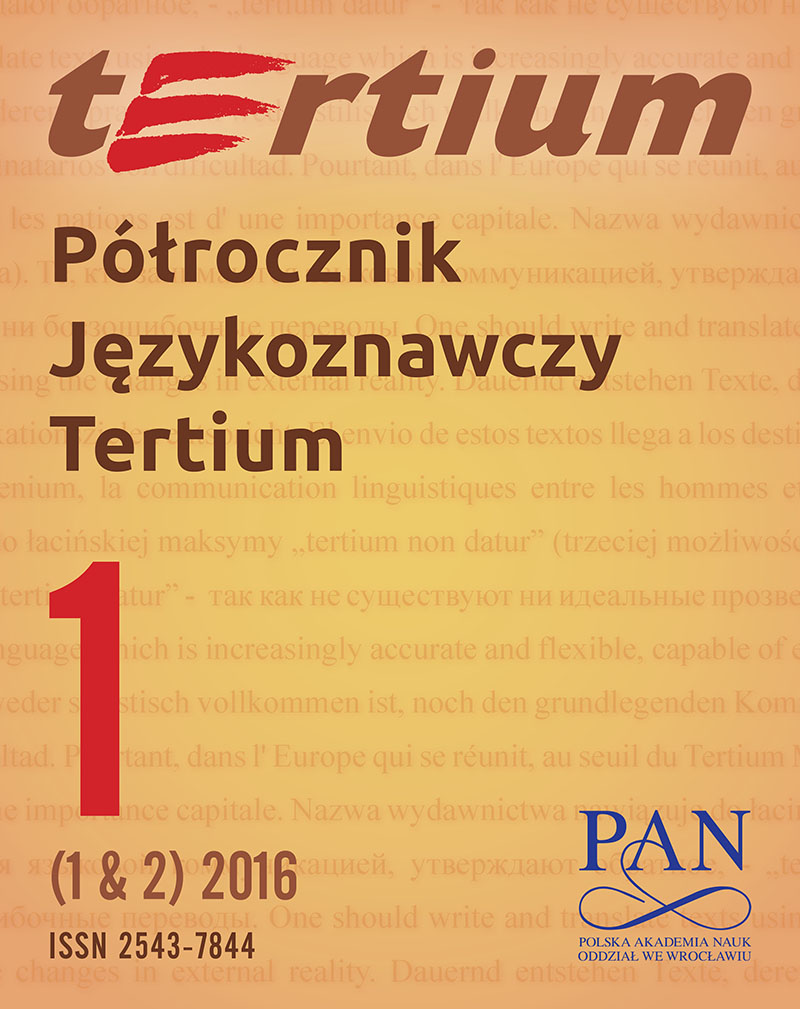Author(s): Małgorzata Izert / Language(s): Polish
Issue: 2/2017
W artykule tym jest analizowane znaczenie kontekstowe czterech przysłówków trochę, nieco, mało, niezbyt oraz ich francuskich odpowiedników un peu, un (tout) petit peu, peu, pas trop we współczesnym języku prasy i polityki. Według podstawowych definicji słownikowych służą one do wyrażania słabego natężenia cechy. Dziennikarze nie chcąc kogoś urazić, a politycy chcąc lepiej wypaść, mówiąc o sobie samych, używają ich, aby w sposób eufemistyczny powiedzieć o negatywnej cesze (trochę, nieco / un peu) albo aby prawie zanegować istnienie cechy pozytywnej (mało, niezbyt / peu, pas trop). Często jednak mówiąc mniej, dziennikarze czy politycy dają odczuć, że powiedzieli więcej. Litota – którą siłą rzeczy można dokładnie odczytać tylko w kontekście użycia, jest zawoalowanym sposobem skrytykowania kogoś lub czegoś, wytknięcia poważnego niedociągnięcia. Używa się jej dla wyrażenia silnego stopnia natężenia lub nawet nadmiaru cechy negatywnej. // In this article we analyze the context meaning of four adverbs: trochę, nieco, mało, niezbyt and their French equivalents un peu, un (tout) petit peu, peu, pas trop in contemporary press and political language. According to basic dictionary definitions, they are used to express weak intensity of a feature. The journalists, trying to avoid offending somebody, and politicians trying to make better impression while talking about themselves, use them, to talk about a negative feature in an euphemistic manner (trochę, nieco / un peu), or to “almost deny” the existence of a positive feature (mało, niezbyt / peu, pas trop). However, while telling less, the journalists or politicians often intend to make an impression that they said more. Litotes, which inevitably can be accurately understood only in the full context of use, is a veiled way to criticize someone or something, to point out a serious shortcoming. It is used to express a strong degree or even an excess of a negative feature.
More...
